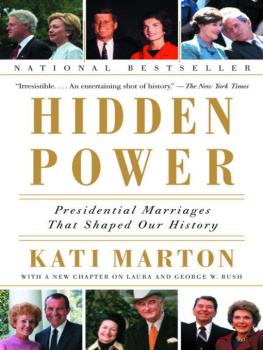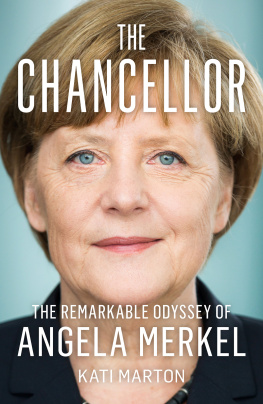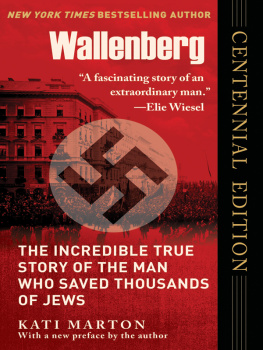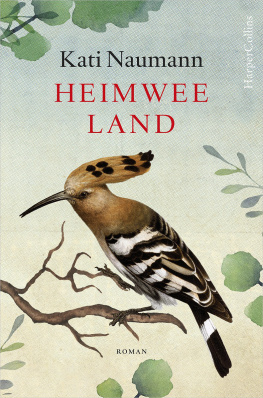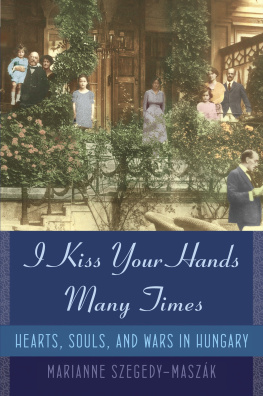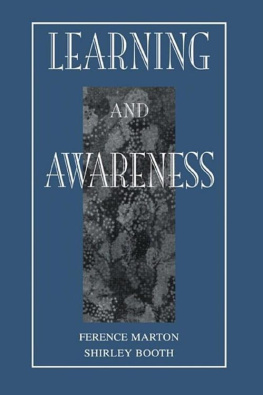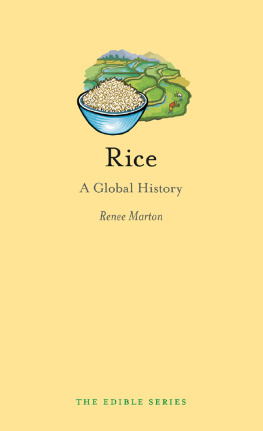
ALSO BY KATI MARTON
The Great Escape
Hidden Power
A Death in Jerusalem
The Polk Conspiracy
An American Woman
Wallenberg
ENEMIES OF THE PEOPLE
My Familys Journey to America
KATI MARTON


SIMON & SCHUSTER
1230 Avenue of the Americas
New York, NY 10020
www.SimonandSchuster.com
Copyright 2009 by Kati Marton
All rights reserved, including the right to reproduce this book or portions thereof in any form whatsoever. For information address Simon & Schuster Subsidiary rights Department, 1230 Avenue of the Americas, new York, NY 10020
First Simon & Schuster hardcover edition November 2009
SIMON & SCHUSTER and colophon are registered trademarks of Simon & Schuster, inc.
For information about special discounts for bulk purchases, please contact Simon & Schuster Special Sales at 1-866-506-1949 or business@simonandschuster.com.
The Simon & Schuster Speakers Bureau can bring authors to your live event. For more information or to book an event, contact the Simon & Schuster Speakers Bureau at 1-866-248-3049 or visit our website at www.simonspeakers.com .
Designed by Dana Sloan
Manufactured in the United States of America
10 9 8 7 6 5 4 3 2 1
Library of congress cataloging-in-Publication Data
Marton, Kati.
Enemies of the people : my familys journey to America / Kati Marton. 1st Simon & Schuster hardcover ed.
p. cm.
Includes bibliographical references and index.
1. Marton, Katichildhood and youth. 2. Marton, Endre, 1910 2005. 3. Marton, Ilona, d. 2004. 4. Budapest (Hungary)Biography. 5. JournalistsHungaryBudapestBiography. 6. Political prisoners HungaryBiography. 7. Hungary. Allamvedelmi Hatosag. 8. HungaryHistory19451989. 9. World War, 19391945Hungary Budapest. 10. Hungarian AmericansBiography. I. Title. DB992.M37 2009
305.9069140922439lc22 2009014480
ISBN: 978-1-4165-8612-8
eISBN: 978-1-4165-8619-7
For Mama and Papa
who led us on our journey.
And for Richard.
CONTENTS
INTRODUCTION

A photograph of me at age two or three, which I found in the secret police files.
IT IT WOULD BE better if you came alone this time, Dr. Katalin Kutrucz, the head of the Hungarian Secret Police Archives, suggested on the phone. The last time we met I had been accompanied by a friend, a lawyer who knew his way around the Archives. Then, Dr. Kutrucz had been all business: crisp, impersonal, bureaucratic. An old-style apparatchik, I had assumed, simply allowing me to seeas was my right under the laws of post-Communist Hungarythe secret police files on my parents. Now her voice sounded differentmore human, more compassionate. Her new tone made me anxious.
Just a short while earlier, one of Hungarys most respected writers had been given his fathers filesand discovered a history of breath-taking intrigue and betrayal even of his family. The foremost historian of the AVO, the Hungarian secret police, had warned me that I was opening a Pandoras box, when I first applied for access to the files. But I wanted to know the truth about my parents, about what had really happened in Budapest, in those distant Cold War days, when my sister and I were children. My parents had glossed over large portions of our historyeven though my father was a celebrated journalist of his era, who won awards and recognition for his coverage of the 1956 Hungarian Revolution. You are an American, Papa would say, you cannot ever understand what it was like under the Fascists and the Communists.
That night I slept fitfully. What did I fear most? I suppose evidence of some act of compromise or betrayal that would shatter forever my image of my parents. The risk was real. From Gnter Grass to Milan Kundera, secret police files from the Gestapo to the KGB continue to disgorge the debris of half a century of such betrayals. I understand why so many people do not want to learn about the past; let sleeping dogs lie, they say to me. But I want the truth, even if it is painful.
Eyes burning from a sleepless night spent wondering about the archivists changed tone, I climb the grand staircase of an Italian Renaissance palazzo, the birthplace, in 1946, of the AVO. The building had been the scene of some of the terror states worst crimes. By 1950, the palazzo couldnt contain the work of thousands of uniformed and nonuniformed agents and their vast network of informers whose job it was to infiltrate every corner of their fellow citizens lives. So the AVO requisitioned other choice bits of real estate on and around the elegant Andrassy Boulevard, which had been renamed Stalin Boulevard. Today, the building flies the European Unions blue and gold banner and shares the block with two health spas.
Dr. Katalin Kutrucz, a short, high-strung, bustling woman in a synthetic pants suit and wearing sort of open-toed Dr. Scholls shoes with socks, ushers me into an oval-shaped room with high ceiling and intricate moldinga room that seems suitable for an intimate musical evening. She plunks down next to me at a faux wood table. Blinking fast, she says, It turns out that yours is one of our bigger files. Should I feel proud? I am terrified and eager to plunge into a growing mountain of manila files that clerks in white coats are wheeling in on shopping carts and unloading. Dr. Kutrucz does not smile, but the fact that she calls me Katika, the Hungarian diminutive of my name, only increases my agitation.
All my life, my parents defiance of the Communists, their stubborn courage as the last independent journalists behind the Iron Curtain until their arrest, trial, and conviction as CIA spies, has been at the core of our family identity. On February 25, 1955, at two in the morning, following a game of bridge at the home of the United States military attach, my father was abducted by six agents of the secret police. His arrest was front-page news in The New York Times. Four months later, they came for my mother. The following January, almost a year later, The New York Times, in another front-page story, reported that Endre Marton, a correspondent for the Associated Press in communist ruled Hungary, has been sentenced to six years in prison on a charge of espionage. His wife, Ilona, who worked for United Press was sentenced to three years The Martons have two young daughters, Kati and Juli. Accompanying the article was a photograph of a handsome, elegant couple and their smiling little girls, a happy family, self-contained and seemingly indestructible, on our last Christmas together in Hungary, before everything changed. Thus did I make my debut in the press, although I did not see the story until decades later.
My parents were forward-looking people. They looked back only selectively. When, toward the end of his life, my father was given Hungarys highest civilian award from the foreign minister of a free and democratic Hungary, he did not come to New York to receive it in person, leaving it to me to accept for him. That evening, the foreign minister surprised me with a large manila envelope containing AVO material on Papa. My father never opened that file; he was done with all that. To him, historyat least his historywas a burden. For me, it was the beginning of my search.
It has been said that childhood is a foreign land. This is especially so if the child is uprooted early from that small universe where all is familiar, and transplanted to a country where no one knows how to pronounce her name. After my parents both diedmy mother in 2004 and my father the following yearI became obsessed with learning everything I could about what precisely had happened to them and to my sister and me in the land where everything began. No subsequent chapter in my life had matched those Budapest years for intensity and the power of family love. My parents and sister and I formed a tight unit partly because the world outside was hostile. Once safe in America, each of us would pursue our own lives, and our family ties inevitably loosened. We had successfully made the crossing. Strangely, I still longed for a time that had been dangerous and painful for all of usyet had bound us together. I missed the closeness of our lives in Budapest.
Next page

